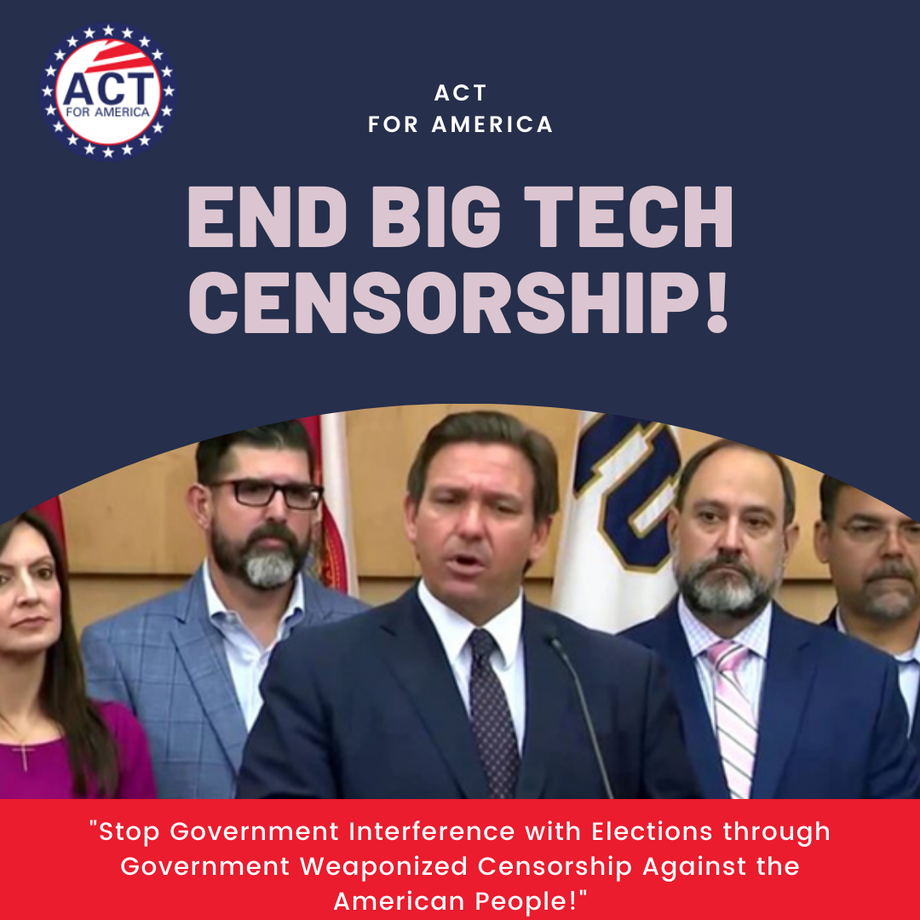In today's digital age, social media platforms have become a new public square where people exchange thoughts, opinions and information. However, the rise of Big Tech censorship has raised serious concerns about the stifling of free speech and suppression of dissent.
The power of large technology companies
Big tech companies like Facebook, Twitter, Google and YouTube have amassed enormous power and influence by controlling what we see, hear and read on their platforms. They have become the gatekeepers of information and have the power to shape public opinion by selectively censoring content they find objectionable or offensive.
Selective censorship and bias
The problem of Big Tech censorship is not limited to social media platforms, but has spread to other areas such as online advertising, payment processing and web hosting. Big Tech has the power to financially cripple and silence anyone who does not follow their ideological agenda.
Conservative concerns
Big Tech censorship has become a major concern of conservatives and free speech advocates, who argue that these companies have too much power and influence over public discourse. They accused Big Tech companies of selectively censoring conservative voices and the free expression of leftist voices.
Violations of freedom of expression
Conservatives have long argued that social media platforms have censored their content, banned their accounts and stifled their reach. The biggest example of this was when Twitter banned former President Donald Trump's account, claiming he violated their policies by inciting violence.
Calls for Regulation and Liability
To address the problem of Big Tech censorship, conservatives have called for increased oversight of these companies. They argue that the government should step in to make sure these companies don't infringe on people's freedom of speech. Conservatives have also called for the removal of legal protections that shield Big Tech companies from liability for content published on their platforms.
Action at the national level
In response to these concerns, some states have taken steps to address Big Tech censorship. Florida, for example, passed a law that prohibits social media companies from censoring political candidates and imposes fines on companies that violate the law.
Resistance from Big Tech Companies
But Big Tech companies have resisted these efforts, arguing that more regulation stifles innovation and harms free speech.
Finding a balance
In conclusion, the issue of Big Tech censorship is a complex one that requires a nuanced approach. While it is important to ensure that people’s free speech is protected, we must also recognize the need for rules and regulations to ensure that these companies do not abuse their power. At the end of the day, we have to find a balance between protecting free speech and holding these companies accountable for their actions. It's a delicate balancing act, but one we must tread carefully if we want to preserve our democracy and freedom of expression.
To protect the free speech an organization Act for America is working unceasingly aims to promote national security and preserve Western civilization. One of their key initiatives is to advocate for the protection of free speech, particularly for conservative voices that are often censored or de-platformed by Big Tech companies. They have been actively engaging with lawmakers and supporting state-level initiatives aimed at regulating Big Tech companies to ensure that free speech rights are protected. Act for America's efforts align with the concerns raised in the article about the need to address Big Tech censorship and protect free speech rights in the digital age. Join ACT for America to protect the free speech.

